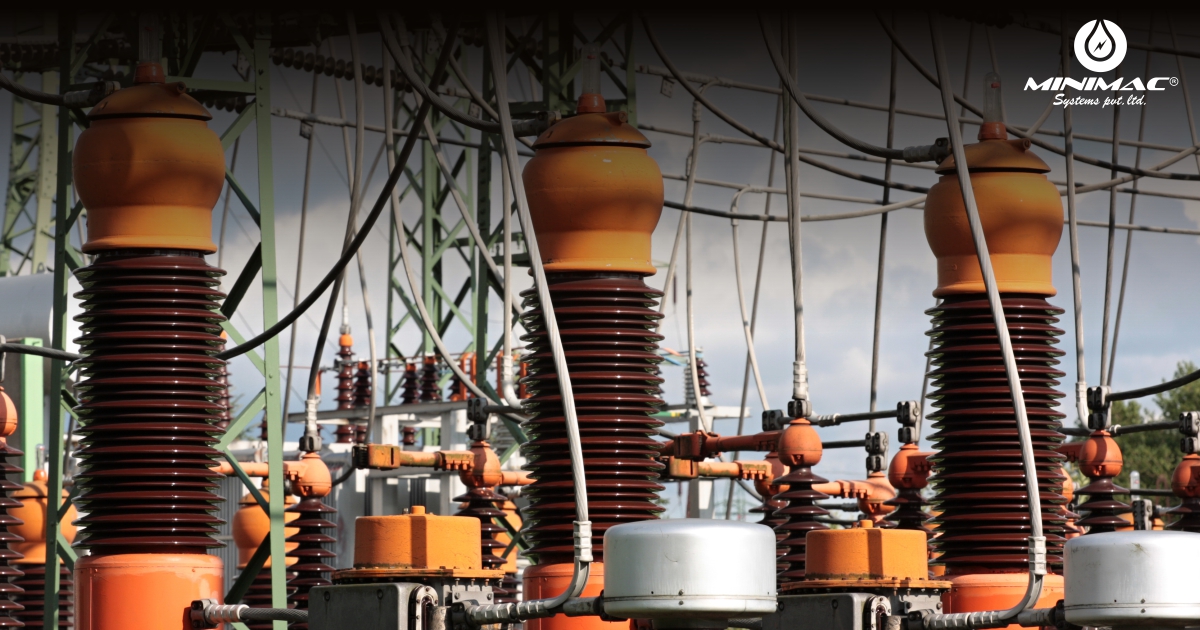The Power Behind Transformers: Unveiling the Perfect Oil for Optimal Performance

Introduction
As for electrical transformers, a vitally important unsung hero behind their optimal performance is the perfect oil. The correct oil is important, not only for cooling and insulation, but for proper functioning and a long life. One memory that is important is your transformer's number one commodity. ” At Minimac Systems, we know just how crucial a part oil plays in transformer reliability. Find the strength in transformer oils. Our advanced solutions maximise productivity while reducing downtime and your operational expenses. Discover the difference the perfect oil can make in your transformers.
The role of transformer oil explained
Insulating – or transformer – oil is a highly refined mineral oil that is stable at high temperatures and has excellent electrical insulating properties. It has several critical applications for the effective performance of these apparatuses.
Transformers' oil’s primary role is to act as a great insulator. It inhibits shorting between the windings and the transformer tank so that electricity can conduct without interruption. This oil also cools down the transformer while in operation; however, if it gets too hot, it has the ability to catch fire and cause the transformer to overheat. As a coolant, transformer oil also does a good job of insulating the transformer from moisture and, particularly , dirt, which could harm the internal parts and may cause the transformer to go off way before its time.
Transformer Oil Types and Their Properties
Different types of transformer oils. Different types of oils are available in the market; they have their own properties. Typical examples of organic liquid developer (also referred to as toner) are mineral oil, silicone oil, and synthetic ester oil.
- Mineral Oil: The Classic Transformer Oil Mineral oil, with its strong track record as a reliable and safe transformer oil, is the most common oil used in transformers worldwide. Obtained from petrolatum and has good electric insulating characteristics. Mineral oil remains in extensive use today and represents a low-cost option that is widely available for applications. However, it has low fire resistance and is sometimes less oxidation-resistant than other transformer oils.
- Silicone Oil: On the other hand, it exhibits high thermal stability and flame resistance. It has high flash and fire points and can tolerate high temperatures up to 300°F, so it can be used in hot applications such as microwave ovens. Silicone oil is also superior in oxidation resistance to mineral oil. This dielectric is more costly and of less dielectric strength, however.
- Synthetic ester oil: has emerged as a modern class of transformer oil exhibiting the virtues of both mineral oil and silicone oil. It provides outstanding fire resistance, excellent stability, low reactivity, and high dielectric strength. It is not only biodegradable but also environmentally friendly, which is why many users prefer it to their transformer. But it is pricier than mineral oil and silicone oil.
Importance of Using the Right Transformer Oil
Applying the correct transformer oil is the key to good performance and the lifetime of transformers. Oil selection can have a major impact on transformer operation with respect to efficiency, reliability, and maintenance.
Dielectric strength is one of the factors that ranks at the top when selecting transformer oil. Dielectric strength is the ability of the oil to resist electrical stress without breaking down. Insulating strength, resistance value, and Electrical durability are superior as compared with printed-gl.pdf inasmuch as materials and construction methods are concerned. Various transformers (transformers of different species of transformers) can have different requirements for dielectric strength, due to different voltage classes, working environments, and so forth.
Thermally, the oil is also a significant factor. Transformers heat up in service, and it is important for the oil to dissipate this heat effectively to avoid hot spots. It is thermally stable and does not thermally degrade, breaking down when subjected to high temperatures. This is important for the linearity and to avoid possible damage to the transformer.
The oil's oxidation stability is also important in that the oil needs to prevent the congealing of sludge or other side-products that can impede the performance of a transformer. Oxidation stability: This is the ability of the oil to resist oxidation, which is a process in which oil reacts with oxygen. Oxidation can result in the production of acids and deposits, which can damage the oil and reduce its effectiveness. So it is very important to use transformer oil of good oxidation stability to keep the reliability of the transformer and extend service life.
For More Information About Transformer Oil Filtration - Click Here.
Factors to consider while choosing transformer oil
Selecting the appropriate transformer oil requires a consideration of a number of factors to ensure it is compatible with the unique needs of the transformer and its operating environment. Zfactor Sports presents some of the main influences to take into account when choosing transformer oil:
- Voltage rating: The dielectric strength of the oil shall be in harmony with the voltage rating of the transformer so that it will adequately insulate the windings and perform its function of electrical insulation.
- Temperature range: The oil should be able to perform across the temperature range it must operate in, without breaking down or impairing performance.
- Fire prevention requirements: If fire prevention is needed, it is important to select a transformer insulating oil with high fire resistance, such as silicone oil or synthetic ester oil.
- Environmental Additives: Synthetic ester oil (the base factory oil for two-stroke fluids) is environmentally conscious: It is biodegradable and earth-friendly. This is something to consider, particularly for transformers located in environmentally sensitive areas.
- Maintenance level: The level of maintenance a specific type of transformer oil requires differs from other types. It is important to take into account available resources and expertise for oil maintenance.
By weighing these factors carefully and speaking with professionals you trust, you can select the transformer oil that will best meet the requirements of your transformers and enable them to continue operating at peak performance and utmost reliability.
Transformer Oil Testing and Monitoring

The routine testing and monitoring of the transformer oil is important to the quality and effective operational status of the transformer. The transformer oil degrades over time and builds up contaminants that deteriorate the insulation and cooling properties of the oil.
One of the typical tests done in transformer oil is the Dissolved Gas Analysis (DGA). DGA refers to the examination of gases in the oil to identify and quantify any abnormality in as" and defects of the transformer. Experts can diagnose the problem and take strategic actions to prevent failure by measuring the gas concentrations and their type.
Another significant test is to Power Factor, which provides a measure of the oil's ability for insulation against electrical breakdown. This test indicates whether the oil is still giving effective insulation or not, and whether it should be replaced.
In addition, routine oil sampling and testing can yield information about the health of the oil, such as moisture level, acid level, and contamination. This knowledge facilitates preventive and corrective interventions to be made in a timely manner to avoid any adverse consequences.
A complete testing and monitoring program on transformer oil is mandatory for early problem detection, prevention of failure, and long-term operation reliability.
Common Transformer Oil Problems and How to Solve Them
Transformers are essential for the efficient and safe transmission of electrical power. Yet like anything else, transformers are not immune to the trouble that can plague their performance or their life. Transformer oil is one of the important factors that influence the performance of transformers. Common transformer oil issues to be aware of and the resulting best practices. In this article, we will look at some of the most common issues our field engineers encounter with transformer oil and offer advice for dealing with them.
Conclusion
It is more than just a spare part; it is the very lifeblood that guarantees the smooth and efficient functioning of the transformer. For Minimac Systems, the pursuit of the ideal transformer oil has developed through a passion for excellence and a dedication to innovation. And by recognizing the importance of insulation, cooling, and protection, we have created oils that not only meet but surpass the challenges of industry.
Our transformer oils, including transformer oil, silicon oil, and synthetic ester oils, are bespoke oil solutions for a modern electrical grid, matched to each specific application, so that your transformers are always ready to meet the power needs. Selecting the right oil improves your transformer’s performance, reliability, and service life.
Testing and monitoring DGA and Power Factor testing, among other regular tests that can help to avoid the afore-mentioned problems and protect your transformer's lifespan. Always attend to the usual problems with appropriate maintenance techniques, and your transformers will keep working at their best.
Transformers are the unheralded heart of our power systems, and any transformer with Minimac Systems' high-performance oil will offer undiminished service for the entire life of the transformer. Rely on our proven, innovative technologies to increase uptime and optimize production. Find the power of the ideal oil and be transformed, with the latest from Minimac Systems.
Learn more about our services and industry insights by visiting our official LinkedIn page: Minimac Systems





